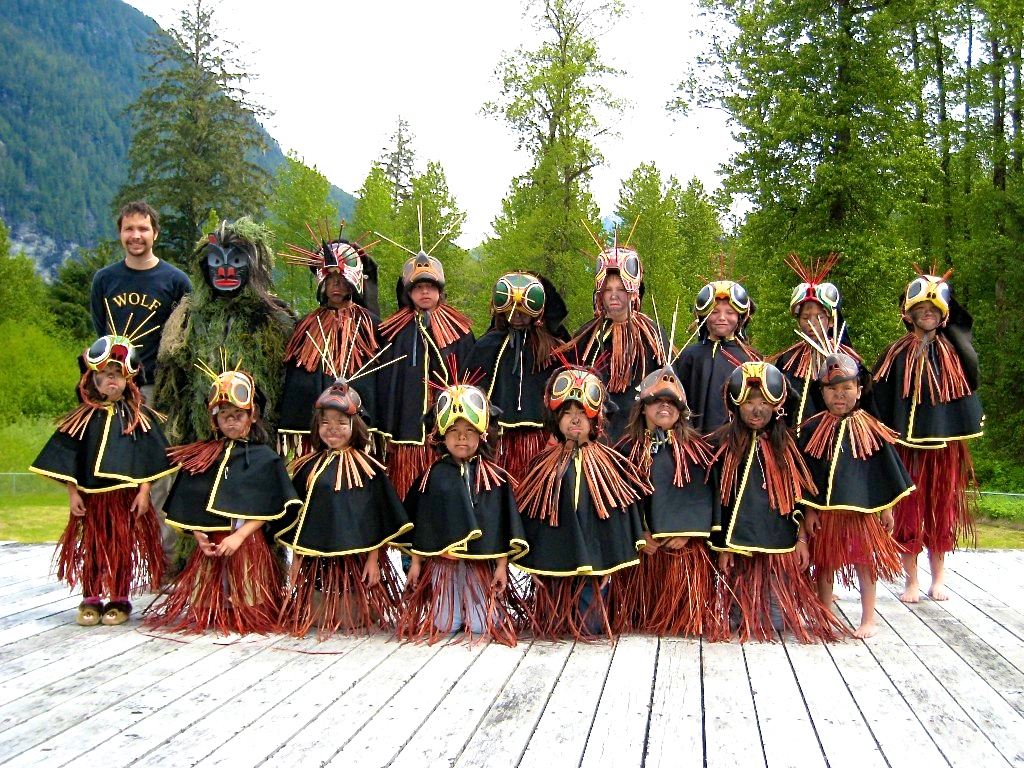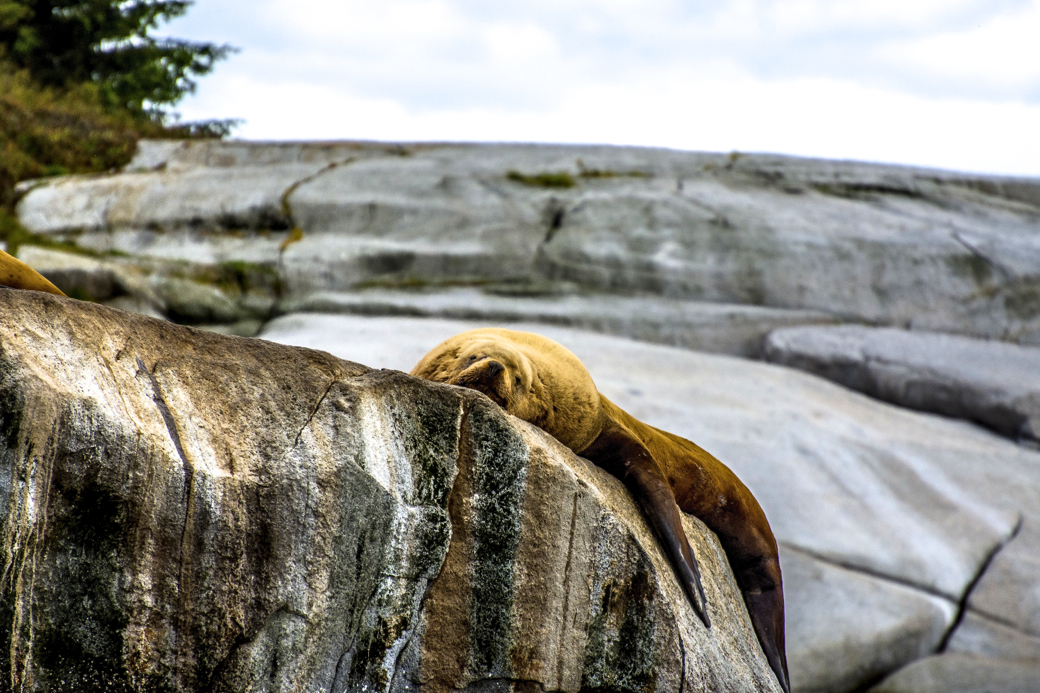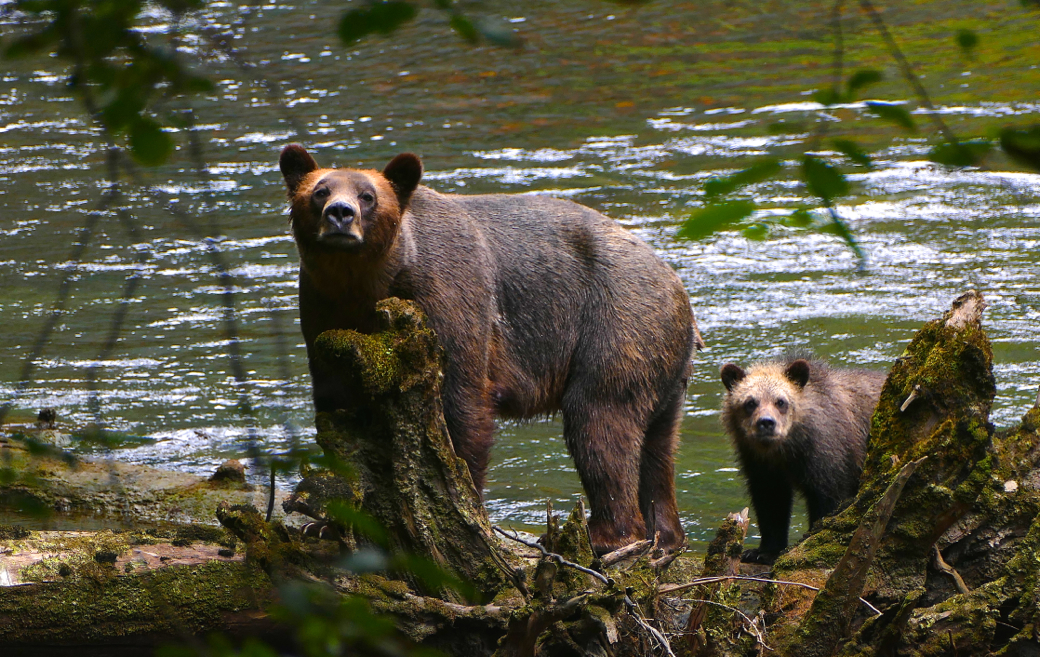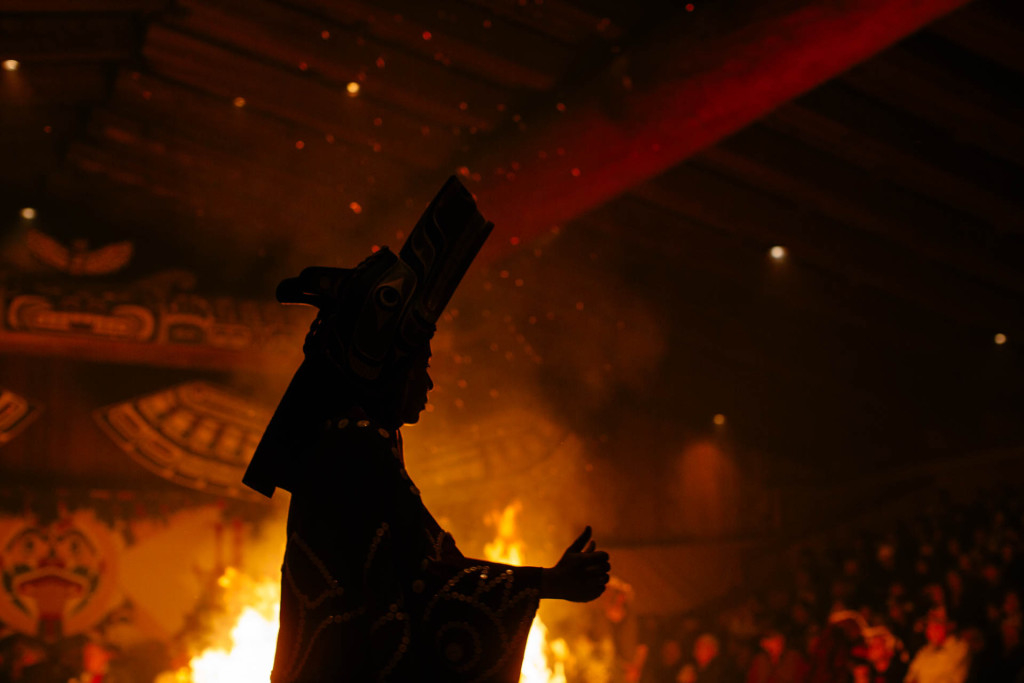Editor’s note: This post was produced in an arms-length collaboration with the Indigenous Tourism Association of British Columbia.
Toque & Canoe recently caught up with Mike Willie — the force behind Sea Wolf Adventures, a boat-based tour company located in Port McNeill on Vancouver Island’s northeast coast. Willie’s operation caters to travellers from around the world, while celebrating the living culture and wildlife-rich ancestral homeland of his people, the Musg̱a̱makw Dzawada̱’enux̱w.

Photo courtesy Sea Wolf Adventures
T&C: How did Sea Wolf Adventures become a reality? Take us back to the beginning.
Mike Willie: I had moved away from Port McNeill and I was homesick. So once, when I returned, I did a fast and bathed in a glacier-fed river. Traditionally, our people go out into the forest for four days and four nights, with no food or water, to basically find answers.
When I was done, I knew two things: I needed a boat, and I needed to create some sort of service so I could pay my way.
Someone gave me the idea to set up a water taxi between Telegraph Cove and Alert Bay. One day, I spent time with guests who needed transportation, and I discovered a genuine hunger for a deeper interpretation of local culture, history and wildlife.
Archeological evidence suggests people have been living on these lands for 14,000-plus years. Our elders, given our oral culture and traditions, believe it’s way longer.
My company grew from there. My boats got bigger. My ideas got bigger. And here we are, today.

Photo courtesy Sea Wolf Adventures
T&C: Wildlife viewing is integral to what you do. Tell us about your relationship with the animals in your territory.
Mike Willie: We’ve had visitors from England, Italy, Jamaica, Holland, Australia, Belgium and lots from around Canada. I love watching the guests as they take it all in. We see everything from sea lions, harbour seals and dolphins to wolves and humpback and orca whales. We’ve got sea otters, black bears and grizzlies, too.
Grizzlies, in my culture, are our protectors. You hear about them in our history that is recorded through songs. These stories go back hundreds, if not thousands, of years.
In our Big House ceremonies, grizzly bear dancers are the ones who help make sure everything goes well. They are the ones who keep people in line.
When I see grizzlies in the wild, I personally see them as brothers and sisters, almost like human beings with animal skins. To encounter them is always moving.

Photo by Sherry Moon courtesy Sea Wolf Adventures
T&C: How can travel play a role in promoting reconciliation between Indigenous and non-Indigenous peoples?
Mike Willie: Travel is a potent tool. Our slogan is “Travel, Truth and Beauty.” As a company, we take the truth seriously. What’s at the foundation of reconciliation for our people is land. We are the land. And that’s where we divide from mainstream culture in Canada.
If you were to dissect our language, you would learn the mindset of our ancestors. We were, and we are, very, very connected to our environment. We talk about these things with our visitors who are genuinely interested.
Right now, in our traditional territories, those who benefit most are the huge corporations: fish farms, which are threatening our wild salmon stocks, and logging companies, which are damaging the land.
We’re not dealing with oil interests, yet. But logging companies and fish farms are the two monsters in our territory.
So, the land question needs to be dealt with. That’s where true partnerships could evolve from, allowing a level playing field for our communities so we can lift ourselves out of poverty and have a better quality of life.
Right now, to give you an idea, this is what reconciliation looks like:
Imagine two friends. One takes the other’s backpack from him. He acknowledges that he’s taken his friend’s backpack. He recognizes that the backpack and all of the contents of the backpack belong to his friend. But he’s going to keep his friend’s backpack anyway.
That’s exactly where we are at on the land or “reconciliation” issue.

Photo courtesy Sea Wolf Adventures
T&C: What’s the best compliment you’ve been paid?
Mike Willie: It came in the form of tears. I was with a group of guests and this beautiful humpback whale had breached about 20 yards away from us. We had been waiting quietly for the whales. After, she swam over to us, as if to say thank you for seeing and respecting her. It was really powerful and it brought tears to the guests’ eyes.
There is a part of the human brain that needs to connect to Mother Nature, to creatures like bears and whales. Not by reading a book about them, or seeing them on television. But by seeing the animals in person in their natural environment, listening to them and observing them.
This interaction fills the human spirit. Because of the experiences they have with us, our visitors arrive as guests but leave as friends. They leave caring a little bit more for the world we’ve shown them, and the world they live in.

Photo courtesy Sea Wolf Adventures
For more related T&C coverage, check out Tasting Turtle Island, A Celebration of Living Culture, Pow Wow Power, Our Home and Native Land, Mythic Messages, Royals revel in Aboriginal Culture, Surviving Canada’s Coldest Season, By the Light of the Candlefish, Vancouver’s Skwachàys Lodge, Feeding our Spirits in Yuquot, B.C. and We are the Land, the Land is Us: Why Indigenous tourism is good for Canada and the world.
Founded by two Canucks on the loose in a big country, Toque & Canoe is an award-winning Canadian travel blog. Follow our adventures on Twitter, Instagram and Facebook


Helen Louise Willie commented:
I’m always happy to hear Mike’s Words of wisdom, He has a lot of knowledge about his culture, our connection to our Marine Life & Lands, Our Environment, eco-systems, The Importance of Balance, Sharing of his Cultural & Traditional Knowledge with his guests. In Sea Wolf Adventure, Travel, Truth & Beauty …. I Appreciate his Sea Wolf Team Of Workers, I am grateful for Success and Prosperity of Sea Wolf Adventures.
toque & canoe commented:
Thanks for your comment, Helen. We’ve heard so much about Mike’s important work in the field. We can’t wait to get out on the water with him ourselves! Toque & Canoe